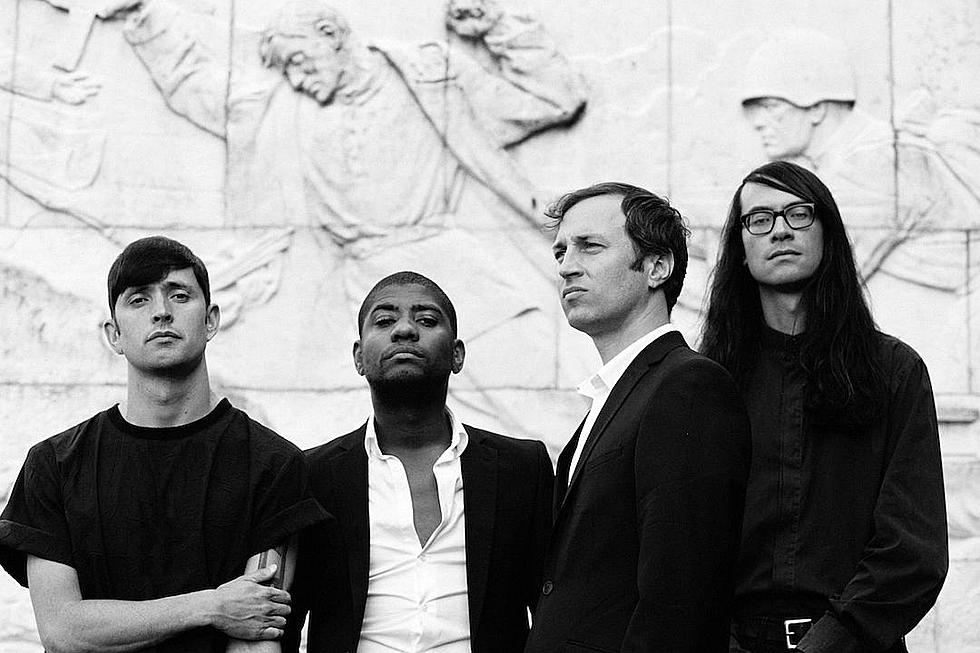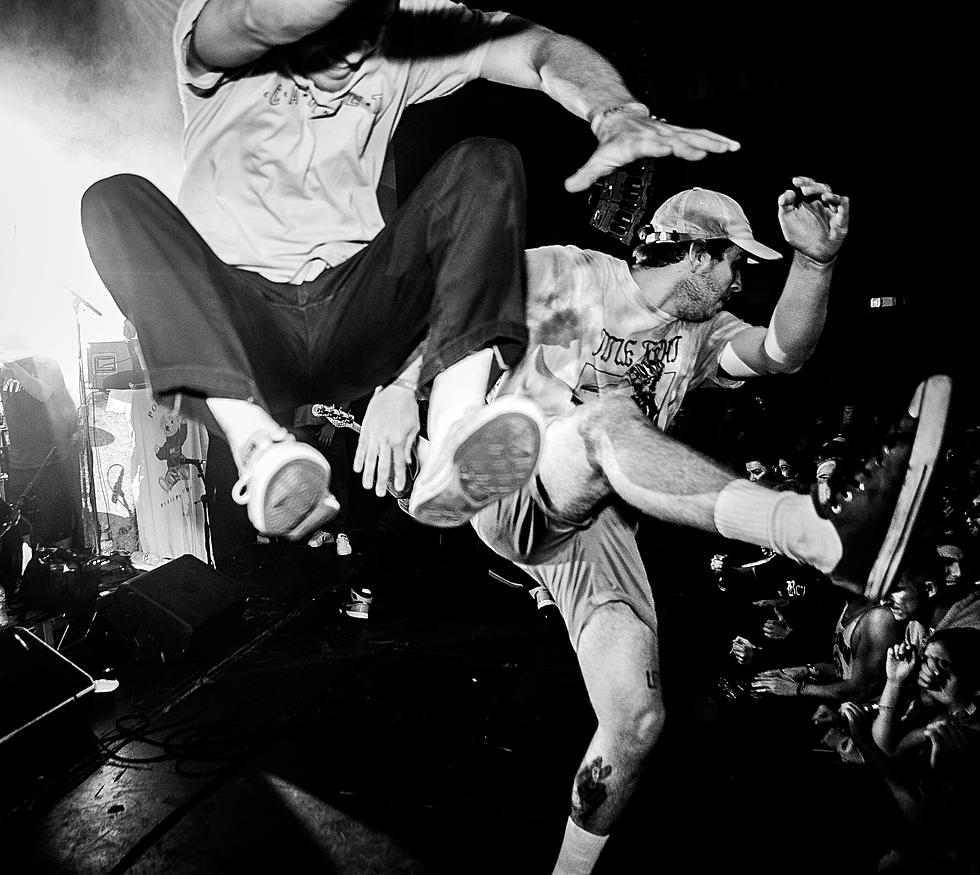
Fields of the Nephilim’s Carl McCoy: Black Metal’s ‘Uncle’
When you talk about the roots of black metal, most people will bring up the unholy triumvirate of Venom, Bathory and Hellhammer / Celtic Frost. Mercyful Fate may get thrown in the mix due to their Satanic lyrics and King Diamond’s proto-corpsepaint, but they're way too musically polished to be considered an influence on the “second wave” that emerged from Norway. The raw, caveman-like intensity of early Mayhem, Burzum, Emperor and post-Soulside Journey Darkthrone are direct descendants of the Venom / Bathory / Frost triumvirate. The music was lo-fi and brutal, with a ghoulish, over the top image. The true difference is that the Norwegians brought a sense of reality to black metal; it wasn’t enough to write songs about destroying Christianity; celebrate Odin; wear leather and spikes; populate record covers with sinister images. The Norwegians stepped it up into the world or arson and murder. Today, everyone has heard of the church burnings, the Euronymous murder, the incarcerations of Varg Vikernes and Bard Faust.
Despite the fact that black metal has moved beyond the underground into a more mainstream profile, it is an outsider art form at its essence. To most of the main players of the genre, black metal is a lifestyle embracing crime, evil, Satanism, violence and general outlaw behavior. It’s a philosophy based in mayhem and the rejection of society. A lot of those guys have issues with getting into the U.S. due to criminal records; when they actually make it in, their shows are often times protested by a myriad of activist groups and shit-stirrers from PETA to Antifa, confirming the outsider / outlaw vibe.
Where the original second wave bands were unrefined and raw, contemporary black metal has incorporated more textures and taken influences from other styles of music, from post-punk and goth to electronic music and straight up rock ‘n’ roll. The scene has also moved beyond its Scandinavian roots and includes bands from most parts of the world. Of course, the originators argue over the validity of most of these newer participants, but the empirical truth is that the art form of black metal is expanding.
If Venom, Bathory and Frost are the Fathers of Black Metal, Carl McCoy should be considered its Uncle. For those not familiar with McCoy’s work, check out his extensive catalog with Fields of the Nephilim, who were initially lumped in with the '80s U.K. gothic rock scene that spawned bands like Sisters of Mercy, Bauhaus and Theatre of Hate. In reality, Fields had much more in common with Nick Cave’s heavily blues-inspired band the Birthday Party than the batcave musings of Peter Murphy and company. What further set them apart was McCoy’s deep connection to the occult and mysticism. It isn’t just an image; it’s built into the fabric of the band and his personal study.
McCoy’s lyrics — as well as the artwork that results from the collaboration with his partner Lynn under the name Sheer Faith — is steeped in symbolism and references to Aleister Crowley, William Blake and the obscure artist / occultist Austin Osman Spare. The title of the song "Moonchild" is taken from the Crowley text of the same name; the song "Psychonaut" is also he title of the book by chaos magician Peter Carroll. McCoy has often referred to Fields of the Nephilim performances as rituals.
The term "ritual" is also frequently thrown around in the black metal world. Watain refer to their live shows as rituals, featuring an altar as a centerpiece of their stage. Behemoth also make reference to their shows as rituals, and oftentimes their stage setup displays the unicursal hexagram used in Crowley’s Thelema. Behemoth frontman Nergal appeared live with McCoy at a Fields of the Nephilim tour stop at Katowice, Poland back in 2011 to perform the song "Penetration."
McCoy appeared on Watain’s 2010 LP Lawless Darkness on the track “Waters of Ain”. Watain frontman Erik Danielsson reflects on his experience with McCoy:
There were many reasons why I thought he'd fit so well to that particular song. Partly due to the sound of his voice, but also because of the influence his artistic work has had on my life in general. And although I hadn't met him at the time, I just had a feeling he'd have the right kind of mindset for this kind of collaboration, which I made clear from the start was both artistically and personally significant to me. 'Waters of Ain' is a very special song, and to me it transcends — to a certain extent — the 'Black Metal monicker' and becomes something else. With Carl in there, even more so. Carl McCoy and Fields of the Nephilim have always seemed genre-less to me; they have found their own wilderness and their own force that drives them.
I was introduced to the dark side of music at a quite young age. Fields of the Nephilim instantly became one of my favorite bands, alongside Bathory. At the time I didn’t distinguish between musical genres; it was all a great obscure underworld that beckoned me in. One of the main voices of that time was Carl McCoy and, just like Quorthon, Andrew Eldritch or Euronymous, he had a dark, magical quality about his character. Their band photos and also his appearance in the film Hardware made a strong impact on me, and added to the mystery and sense of something otherworldly. Many artists have to fight hard to maintain that aura; for Carl McCoy, it always seemed quite natural, and thereby, it must be genuine. I've always appreciated genuine things born out of the fire of will rather than rationality.
As black metal evolves to include more subtle influences, its analysis should follow suit. An argument made by one member of the Scandinavian black metal elite is that McCoy isn’t specifically Satanic or involved in crime, which is true — he isn’t a particularly violent person, and his philosophies are more in line with a sort of an Crowlian Occultism, but none of the early second wave bands were particularly Satanic either. Instead, they embraced a pagan worldview. Cronos, the former ringleader of Venom — one of the Unholy Triumvirate — openly states that he isn’t particularly Satanic, and is more concerned with getting a pint and shagging a few birds. So, if anyone were to ever develop a family tree showing the evolution of black metal, let’s make room for McCoy as an uncle.
More From CLRVYNT









